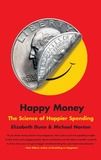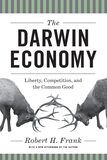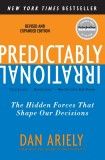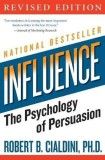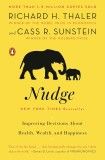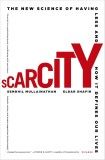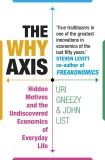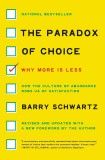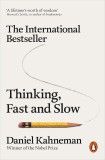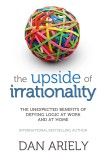Top 10 Best Behavioral Economics Books [2025]
Behavioral economics is the study of people's mindset and decision-making abilities, consequences, and eventually becoming either a wise or a bad habit. It can be termed a subject that is an amalgamation of economics and psychology to analyze how, why, and how people behave in a certain way. The subject itself has a wide scope of study in the real world. Hence, many behavioral economics books are written, and readers must consume them to understand their behavioral changes.
Here is the list of Top 10 Behavioral Economics Books -
- Happy Money: The Science Of Happier Spending ( Get this book )
- The Darwin Economy: Liberty, Competition, And The Common Good ( Get this book )
- Predictably Irrational: The Hidden Forces That Shape Our Decisions ( Get this book )
- Influence: The Psychology Of Persuasion ( Get this book )
- Nudge: Improving Decisions About Health, Wealth, And Happiness ( Get this book )
- Scarcity: Why Having Too Little Means So Much ( Get this book )
- The Why Axis: Hidden Motives And The Undiscovered Economics Of Everyday Life ( Get this book )
- Paradox Of Choice: Why More Is Less ( Get this book )
- Thinking Fast And Slow ( Get this book )
- The Upside Of Irrationality: The Unexpected Benefits Of Defying Logic At Work And Home ( Get this book )
Let us walk through each book briefly to accumulate substantial life lessons –
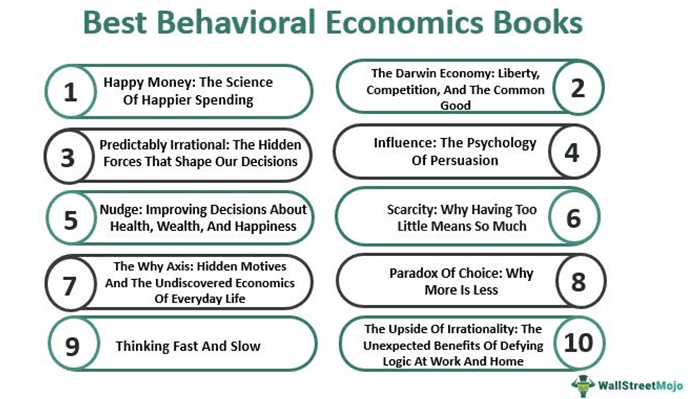
#1 - Happy Money
The Science Of Happier Spending
By Elizabeth Dunn and Michael Norton
The book was released in 2013 in which two professors combined their knowledge to explain how money can make people happy.
Book Review
With the help of this book, people can learn about financial security. The authors show how companies have applied core principles to make customers happy. The five core principles include buying experiences, paying now and consuming later, investing in others, making investment a treat, and buying time. The authors provoke people to ask themselves first if the money they are spending is happy money or not.
Key Takeaways
- The book talks about the science of spending.
- It motivates people to imply as many principles as possible and see the difference.
- The authors gave five core principles of smart spending.
- The book helps people develop a good mindset towards money and life.
#2 - The Darwin Economy
Liberty, Competition, And The Common Good
By Robert H. Frank
The book was published in 2011 and has been an integral part of economics standards and how people perceive financial information, its consequences, and its benefits.
Book Review
It is a well-written book that inspires people to consider economics differently. The book has briefly explained evolutionary theory, subjective arguments, and conclusions based on several hypotheses. For any reader interested in behavioral science, this book will bring a lot of knowledge and information.
Key Takeaways
- The book teaches how to address the financial disparity between individual and group interests.
- The author argues the best solution to tax behaviors that harm long-term interests.
- He gives an idea of social engineering and sin taxes.
- The author states that total anarchy is the only alternative to social engineering.
#3 - Predictably Irrational
The Hidden Forces That Shape Our Decisions
By Dan Ariely
The book was released in 2008 and is an important study material for behavioral economics.
Book Review
The author suggests that people do not literally know what they want and hence get easily influenced by misguided thoughts and improper information. Dan Ariely says that any decision based on standard economics is compared between its worth and cost. The book postulates that everyone is biased in their true nature, and only by understanding this biasedness can help an individual counter it.
Key Takeaways
- The book vastly talks about the decisions flaws everyone makes in their lives.
- The author shows readers how easily irrational thoughts and information influence people.
- He is well known for his work in behavioral theories, and this is one of the top behavioral economics books of all time.
#4 - Influence
The Psychology Of Persuasion
By Robert Cialdini
The book was published in 1984, and from then on, it has invoked the power of persuasion in millions of people by just giving six principles.
Book Review
The author sheds light on the six principles of persuasion: reciprocity, consistency, social proof, liking, authority, and scarcity. The book tells how each of these can make people say yes all the time and get influenced by. Even though the book is old, it is still relevant, proving how people respond to today's market scenario.
Key Takeaways
- The book gives six important principles of persuasion.
- The author states that not only do these principles help in influence but also in decision making.
- He talks about how to influence people and the necessity of it.
- Behavioral economics helps people achieve social goals in day to day lives.
#5 - Nudge
Improving Decisions About Health, Wealth, And Happiness
By Richard H. Thaler and Cass R. Sunstein
The book came out in the year 2008. It is well known for its theories and concepts regarding the decision-making process for better health, happiness, and wealth.
Book Review
The authors highlight everyday people making dozens of choices about what to buy, where to eat, what to eat, what to watch, what to wear, etc. These are everyday activities people end up making the most bizarre choices and bad decisions. The book is based on decades of behavioral science research and discusses various factors giving people ample time and material to access their decision-making process and question it. In addition, the book talks about choice architecture. It is easily one of the top behavioral economics books.
Key Takeaways
- The book is a New York Times bestseller and was also given the title of the "Best Book of the Year" by The Economist and the Financial Times.
- It works as a nudge for people not giving importance to their decisions.
- Richard H. Thaler is the 2017 Nobel Prize winner in Economics.
#6 - Scarcity
Why Having Too Little Means So Much
By Sendhil Mullainathan and Eldar Shafir
The book was published in 2013, and both authors share an interesting story about how they ended up writing this book.
Book Review
The authors provide important information about how scarcity is a mindset trait and contributes more to human behavior in this book. The poor remain poor, the busy remains busy, and the rich stay rich. All such concepts are very well explained in this book with the help of scarcity as a pillar to all such issues. The authors say that a lack of skills, organization, and mindset makes people stuck in a particular life pattern.
Key Takeaways
- The book talks about how there are always people belonging to different social groups and looking at problems in their way.
- The authors give many examples where readers are asked questions given to different scenarios and then self-analyze their thoughts and why they made a certain choice.
- Eldar Shafir is a professor of psychology at Princeton University, and Sendhil Mullainathan is an economics professor at Harvard.
#7 - The Why Axis
Hidden Motives And The Undiscovered Economics Of Everyday Life
By Uri Gneezy & John List
The book came out originally in the year 2013. The authors are two of Forbes magazine's world's most powerful economists.
Book Review
The book takes on a journey where the authors explain why people do what they do in their everyday lives. It is a compilation of data and research done by both authors to support their behavior models and their explanation. The book briefly talks about the underlying motivation for finance inside everyone.
Key Takeaways
- The authors give an exhaustive study on human behavior and deeper motivation understanding.
- The book explains the rich and the poor gap.
- Anyone working in politics, corporate, and philanthropic activities can use their models and theories to perform better and make a difference.
#8 - Paradox Of Choice
Why More Is Less
By Barry Schwartz
The book was released in 2004 and gave a great deal of information based on choices and consequences.
Book Review
The author states that people live in a paradox of choices and are never satisfied with their decisions. The book deals with the central topic of choices made by the people in the past and present and the most likely choices will make in the future. The author points out that having too much to choose from confuses people, which is how they end up making a mistake. Eventually, too many choices lead to unhappiness only.
Key Takeaways
- The author says that the secret to happiness is low expectations.
- He states that the more options present, the harder it becomes to decide.
- The book encourages everyone to become satisfied.
- It is among the must read behavioral economics books.
#9 - Thinking Fast And Slow
By Daniel Kahneman
The book came out in 2011 and is a major New York Times Bestseller. In addition, the Wall Street Journal selected it as one of the best nonfiction books. The author himself is a Nobel Prize winner in Economics.
Book Review
The book is not just behavioral science but also helps people save money and provide financial guidance. The author's work is substantially accounted for achieving financial freedom and has a lot of tips regarding social and behavioral activities in day-to-day lives. In addition, the book talks about errors, misconceptions, and bad decision-making processes and how people can overcome them.
Key Takeaways
- The book recommends not to use emotions while making money decisions.
- The author suggests that if a person does not do anything about it, the first impression is that the brain will always be lazy.
- He says that nothing in life is as important as you think while thinking about it.
#10 - The Upside Of Irrationality
The Unexpected Benefits Of Defying Logic At Work And Home
By Dan Ariely
The book was released in 2010, and Dan Ariely makes it a second time on this list of best behavioral economics books.
Book Review
This book is a groundbreaking work of the author. It reveals multiple biases that lead people to make unhealthy and bad decisions. The author exposes irrationality's surprisingly negative and positive effects on lives. He encourages readers to focus on their work behaviors and relationships. The book sums up many new insights about real motivation, inspirational work, and how bad and unwise actions eventually become long-term habits.
Key Takeaways
- The book answers the query as to why large bonuses eventually make CEOs less productive.
- The author gives tips on how people can be motivated to do their work more effectively.
- He shares his views on why revenge is important to people in the big picture context.
- The author provides ample knowledge of what people think will make them happy.
